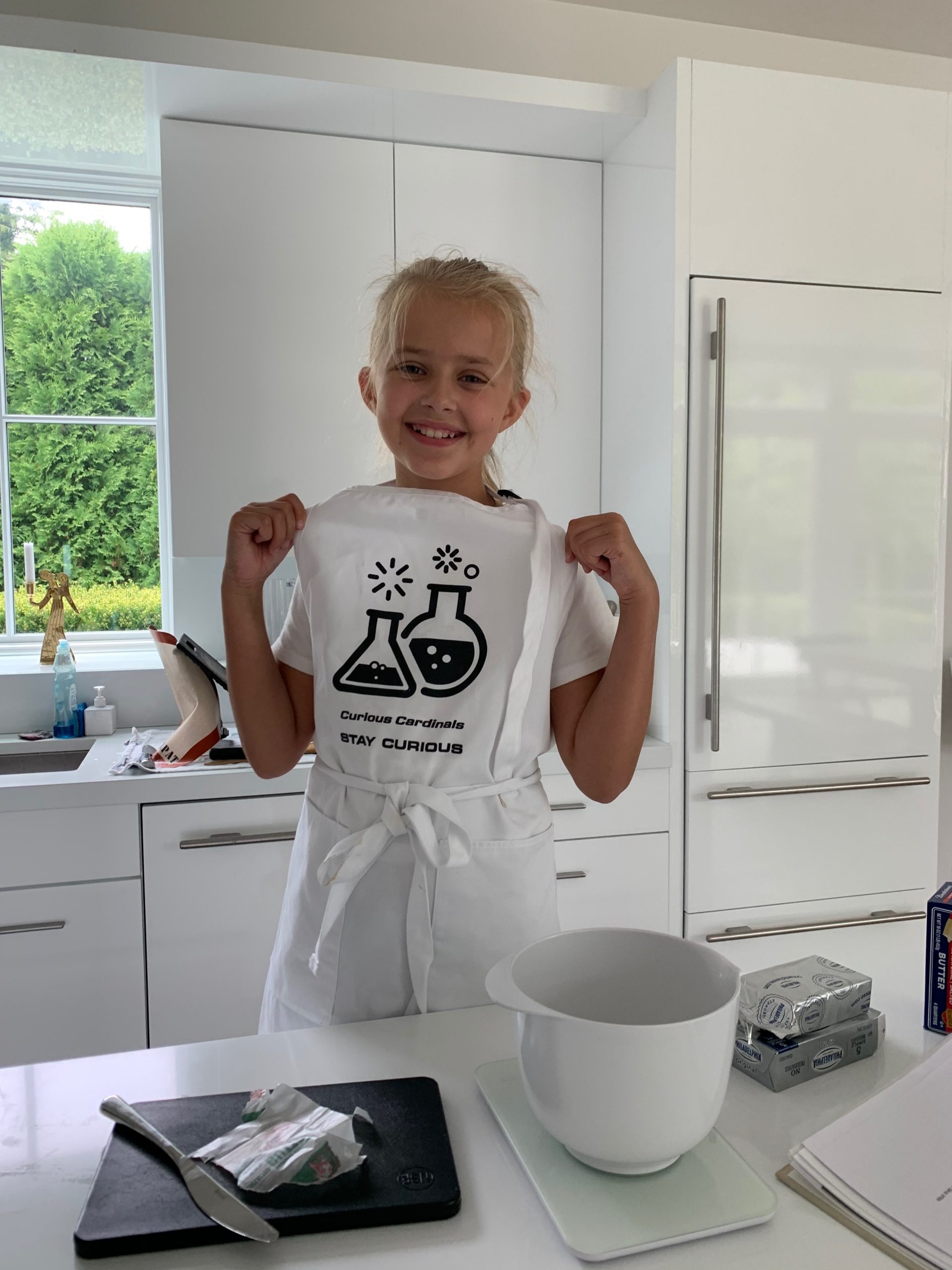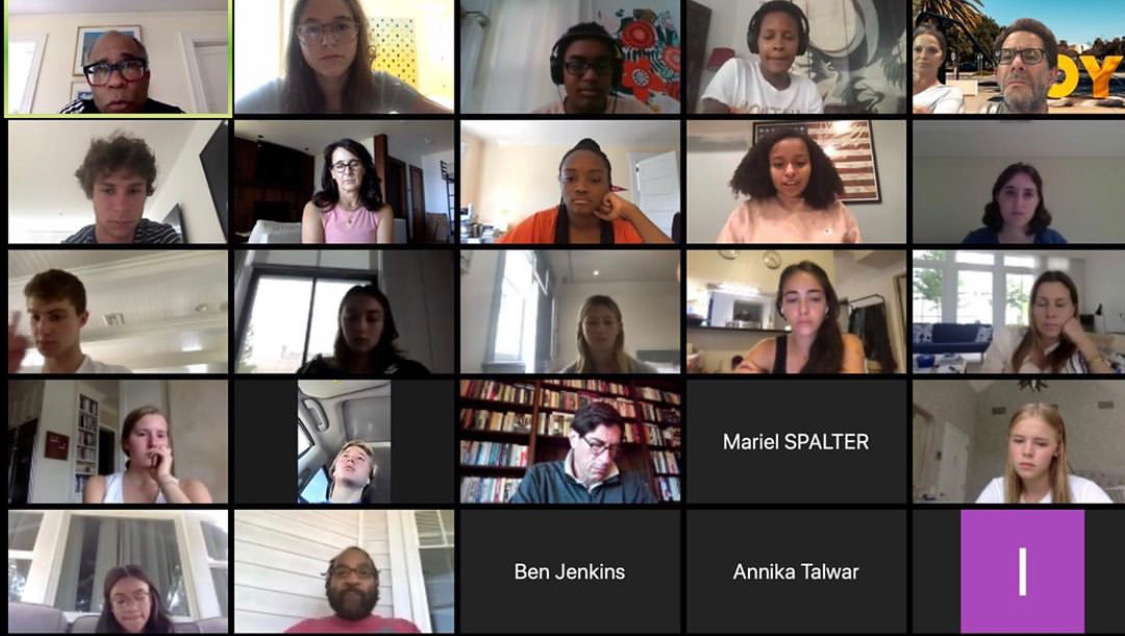Stanford students have launched a virtual platform, Curious Cardinals, to engage K-12 students in academic disciplines through one-on-one tutoring, specialized classes and mentorship.
Curious Cardinals, co-founded by Audrey Wisch ’23 and Alec Katz ’23, hires Stanford students to tutor, mentor and teach classes to younger students on topics ranging from chemistry in the kitchen to mass incarceration. The platform seeks to help students “develop personalized learning models so they can discover and explore their passions in a setting that liberates them from the pressure of grades and other ranking systems,” according to its website.
Wisch and Katz now employ over 30 students from Stanford and other colleges, and teach 120 students. The student teachers are responsible for developing their own curriculums for classes on topics that they are passionate about.
Curious Cardinals began with Wisch’s tutoring students in her community on topics that she felt were typically neglected in middle and high school. Wisch was tutoring one student about landmark Supreme Court cases when the student’s parents asked if she could also tutor their daughter in math.
“I said I was qualified but not passionate about it,” Wisch said. But she realized that Katz, who was interested in math and science, would be great for the job, and recommended him.
The two soon realized that their tutoring students on topics they were deeply passionate about, and the resulting engagement from students who were getting to learn about these issues, could be the base of a viable business. They decided to expand their network to include more passionate college students so they could deliver impactful lessons to spark curiosity in younger students.
The sessions take place a few times a week for around an hour or an hour and a half, during which students are engaged in discussions, readings and lectures. Curious Cardinals has also hosted guest speakers, such as journalist Liz Plank and Harvard Law professor Randall Kennedy.
“Middle and high schoolers often feel powerless,” Katz said. “We seek to equip them with the foundational knowledge, the resources and the people that will enable them to go out and do the things they are passionate about.”
Katz, who teaches “Designing Your Business” and “Algebra, But Make it Fun,” added that the platform strives to help students engage in learning in ways they never have before.
“Our goal is empowering students from a young age to get their hands dirty and to stop thinking of math as the repetitive subject that it was in elementary school,” Katz said. “We want to challenge them to make them think creatively, not repetitively.”
Katz emphasizes exploring the applications of the equations students are learning.
“Students can be very turned off by math because they can’t see the applications of what they’re learning,” Katz continued. “That’s why I’ve noticed that you can’t teach parabolas and quadratic equations without the physics behind it, and without projectile motion. We want students using math to build and make things.”
The platform also offers a mentorship program that pairs younger students with a like-minded college student to work on a project that “both supplements their conventional learning and gives students agency over their education,” according to the website. Working with their mentors, mentees build a portfolio of interdisciplinary projects that can range from designing an airplane to starting a business, Wisch said.
“Just having one person at the right time inspire you can be transformational to your life,” Katz said. “Pairing students with someone they look up to at a university like Stanford can change their academic and professional paths and nurture and cultivate their interests.”
‘And there was her topic‘
Wisch and Katz have also focused on bringing in a diverse range of students from different schools, backgrounds and socioeconomic strata. The team has partnered with Prep for Prep, a New York City leadership development program that helps students of color get into and navigate private high school.
“We’re not too much older than them, so we want to help them realize how much they can do at this age,” Wisch said.
Curious Cardinals teacher and incoming Dartmouth sophomore Cece King said helping students apply their knowledge to societal problems was a highlight of the program.
“If we can get kids in high schools to learn what they’re interested in, and feel they are in control of their education and capable of making an impact on the world, I think that’s incredible,” King said.
Aswhin Reddy ’20, who teaches “Human Behavioral Biology,” echoed King, saying, “My aim for the course is for students to not only learn fundamentals in biology topics, like genetics and neuroscience, but also be able to apply these domains toward understanding human behaviors like language, sexuality, aggression and racism.”
Team members said that their most special moments from the program occurred when they were able to see students involved in discussions and excited about work.
Montana Riggs ’23, who teaches chemistry, Latin and public speaking, said a particularly rewarding moment for her came after a student asked to stay after class to discuss her capstone speech for the class: “a speech of conviction.”
“We ended up chatting for two hours about her passion for musical theater and dreams to perform on Broadway, during which I made a passing comment about the lack of diversity in musical theater,” Riggs said. “She immediately countered my statement, citing the growing numbers of racial diversity, traditional acceptance of the range of sexualities and genders and the persistent push from members in the community to be better in this regard.”
“And there was her topic,” Riggs said. “That nugget of academic discourse that for a seventh grader is not the norm in the traditional middle school classroom ended up culminating in a fantastic speech. Let’s just say I was really proud.”
All Curious Cardinals programming is conducted virtually, which has posed some challenges, the team said. Katz added, however, that virtual instruction has presented the team with new opportunities.
“We can teach students who live around the world, and get guest speakers who we normally couldn’t get,” Katz said.
“I’ve taught over 130 hours over Zoom now, and I know what works and what doesn’t,” Wisch added.
Although Curious Cardinals was born out of the pandemic, the team has plans for continuing to grow the platform and for expanding into an international market.
“We would love to bring in more diverse perspectives through taking on international students,” Wisch said. “We want to redefine the term ‘tutoring’ and make an accelerated track for students who want to have deep learning experiences.”
Contact Sarina Deb at sdeb7 ‘at’ stanford.edu

